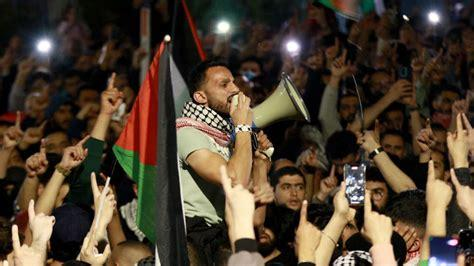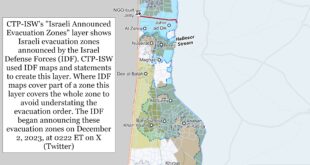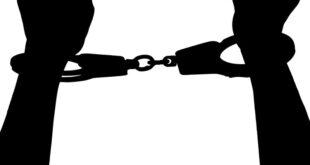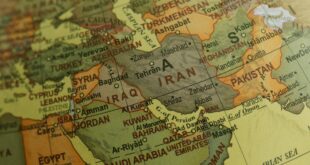One of the U.S.’s closest Mideast allies, Jordan, has been hit by demonstrations that, according to some analysts, have spilled over into a serious threat to the Hashemite Kingdom with open declarations of support for the Hamas terrorist organization.
Jordan’s government has been one of the most vocal opponents of Israel’s war to root out Hamas terrorists from Gaza after the jihadi movement slaughtered 1,200 people on Oct. 7, including many Americans.
Jordan’s Deputy Prime Minister and Foreign Minister Ayman Safadi declared in November that “Hamas is an idea and ideas do not die.” Jordan’s Queen Rania cast doubt in a CNN interview on whether Hamas really committed atrocities on Oct. 7.
Veteran experts on Jordan view King Abdullah II and his inner circle as contributing, directly and indirectly, to the unrest that could potentially dislodge his regime.
The former Israeli ambassador to Jordan, Jacob Rosen, told Fox News Digital that “Jordan is walking on a very tight rope. The authorities let the Muslim Brotherhood under whatever cover they operate to voice out their message, but they disperse any demonstrations [that]] may go ‘wrong’ or to turn against the government itself.”
Rosen, who speaks fluent Arabic and is a leading expert on the Hashemite Kingdom, added that Jordan “operates for some years a military hospital in Gaza, which has no choice but to be in contact with whoever is in control there. There is also a sizable contingent of Gazans in Jordan (at least 300,000), which has to be considered.”
“Parallel to that, the minister of foreign affairs, Ayman Safadi, has a free hand with anti-Israeli rhetoric accusing Israel of genocide and warning against ethnic cleansing. But in any case, Jordan cannot condemn Hamas directly but let some publicists or ex-ministers to do that.”
Last week, protesters chanted, “We are your men, Sinwar.” Yehya Sinwar is the Hamas mastermind behind the Oct. 7 attack and is believed to be hiding in Gaza’s vast underground tunnel system.
Walid Phares, an expert in foreign policy, told Fox News Digital, “What is happening in Jordan now, while it appears as chaotic, is in fact tightly organized by Hamas, the larger Muslim Brotherhood network and the Iran regime. The protests against the Israeli Embassy and spillover in Amman’s streets are the result of tightly coordinated moves by the Iran and Ikhwan networks, with the real target being the Hashemite Kingdom itself.”
The term “Ikhwan” is an Arabic word that refers to the Muslim Brotherhood. Saudi Arabia, the United Arab Emirates and Egypt have classified the Muslim Brotherhood as a foreign terrorist organization.
Indeed, just this week, the former Jordanian minister of information, Samih Al-Maaytah, said on the Saudi Arabian TV network Al Arabiya, “The Hamas leaders in Qatar have incited the Jordanian public, and they are inciting the tribes, inciting people to take to the streets and to chant new [anti-Jordanian] slogans. They are trying to say to Jordan, ‘We own the Jordanian public.’” The U.S.-based Middle East Media Research Institute first located and translated Al-Maaytah’s comments.
It was also reported in Israeli media that Al-Maaytah told another Saudi channel, AlHadath, that Hamas leader Khaled Meshaal was sowing discord among Palestinian clans in the kingdom. Al-Maaytah suggested that Meshaal be stripped of his Jordanian citizenship as well as those stoking conflict.
Phares, the author of “Iran: An Imperialist Republic and U.S. Policy,” said, “Some in Israel and the U.S. assert that the queen and foreign minister ‘contributed’ in encouraging demonstrations against Israel. But an examination of the domestic situation in Jordan shows that the royal government had to show that they are in solidarity with the Palestinian people as a way to avert an intifada waged by Hamas, precisely. Jordanians argue that had the U.S. administration not been so attached to the Iran deal, Hamas wouldn’t have been encouraged to attack Israel, and Arab allies would have acted differently and earlier.”
He continued, “Hence, we know that Tehran and Damascus have been targeting the Hashemite Kingdom for years, and now it looks like they’ve unleashed their supporters against the regime.”
The fragility of Jordan’s kingdom has made it a target for past efforts to oust the king. The nation does not have an oil and gas industry. The unemployment rate is more than 20% and the kingdom has made no real effort to heighten awareness about the need for peace with Israel’s population following the 1994 peace accord between the Jewish state and Amman.
Phares said that “Almost half of the Jordanian population is of Palestinian descent, and an attempt by Yasser Arafat and the PLO (Palestine Liberation Organization), backed by the Assad regime [in Syria], to take over the country was averted by the loyal Jordanian armed forces.”
“The more Israel closed in on Hamas the more the Islamists of Jordan closed in on the Jordanian government,” he continued. “Obviously, the best gate for Iran and the Brotherhood – read, Hamas – to ignite an intifada in the kingdom is a series of violent protests against the Israeli Embassy to appear in sync with the protests everywhere else. But the second stage is in the form of clashes with Jordanian security forces. This old Bolshevik and later jihadi tactic aims at putting large segments of society against their own armed forces, which I believe is the ultimate goal of the Iran axis. It is about taking out Jordan as a Western ally and spread chaos, leading to sending militias across the borders.”
President Biden met with Abdullah in February at the White House, where the leaders discussed the war in Gaza. King Abdullah said, “We cannot afford an Israeli attack on Rafah,” adding that “It is certain to produce another humanitarian catastrophe.” The last vestiges of Hamas’ battalions are in the city of Rafah in the Gaza Strip. Hamas is also holding more than 100 hostages who are believed to be in Rafah.
Biden thanked Jordan at the meeting for its humanitarian aid to Gaza, stating, “We’re grateful to our partners and allies like the king who work with us every single day to advance security and stability across the region and beyond. It’s difficult times like these when the bonds between nations are more important than ever.”
Biden said at the meeting with the king that a Palestinian state could lead to stability and peace with Israel’s Arab neighbors.
“That effort was underway before the Oct. 7 attacks,” Biden said, adding, “It’s even more urgent today.”
The mood in Israel, however, largely contradicts Biden’s optimism, as most Israelis see the two-state solution as a kind of dead-man-walking idea after more than 70 years of failed attempts.
An unnamed Jordanian official condemned the protests by saying, “Hamas is inciting and trying to ignite unrest inside the kingdom. We will not allow it to achieve its goal.”
The growing Iranian threat to Jordan’s government further surfaced when a security official from the pro-Iran regime militia said about intervention in the Hashemite Kingdom: “The ‘Islamic Resistance in Iraq’ is ready to meet the needs of 12,000 fighters … so that we can stand united in defending our brothers in Palestine.”
The security situation for Jordan appears to be raising alarm bells within the Palestinian Authority in the West Bank (known as Judea and Samaria in Israel).
“The President of the PA, Mahmoud Abbas, spoke with King Abdullah II on Tuesday and reiterated during the call Palestine’s stand in solidarity with the Kingdom of Jordan, headed by King Abdullah II,” according to the Palestinian WAFA news agency. WAFA also wrote, “President Abbas stressed the complete rejection of all attempts to tamper with Jordan’s security and stability or attempts to exploit the suffering of the Palestinian people in the Gaza Strip to tamper with the Jordanian arena, affirming the rejection of any external interference in the internal Jordanian affairs.”
The external interference is an apparent reference to the pro-Iranian regime proxies in Iraq.
A Jordanian government spokesperson had “No comment” when asked by Fox News Digital about the recent unrest in Amman, anti-Israel rhetoric from the government, and whether Hamas and the Muslim Brotherhood should be designated as terrorist organizations.
 Eurasia Press & News
Eurasia Press & News




